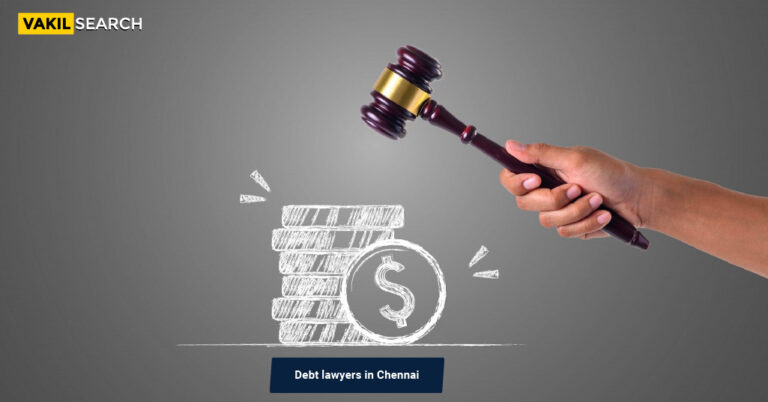Debt recovery law in India is a set of laws that provide a remedy to the creditor when the debtor fails to repay the debt according to the terms of the agreement. Learn more about this here in this blog.
Overview:
Debt recovery laws in India are a set of laws governing the process of recovering debts owed to a creditor by a debtor. The laws of India are defined by the Code of Civil Procedure, 1908, under Article 226 of the Indian Constitution.
Article 226 of the Indian constitution empowers the Central Government to make rules for the practice and procedure of all courts, including the High Court and the Supreme Court, in the Union territory of Delhi.
What is the Debt Recovery Tribunal?
Debt recovery laws in India help people struggling with repaying their loans and getting out of debt. There are a few different types of debt recovery laws in India. One of these is the Debt Recovery Tribunal. This is a specialised court that deals with debt recovery matters.
The Debt Recovery Tribunal has the power to order debtors to pay back their loans and order the seizure of property to get people to pay back their loans. Another type of debt recovery law is the Debt Recovery Act. This law was passed in 2002 and stated that debtors must repay their loans within 180 days of the date of the order. The Debt Recovery Act applies to all debt recovery matters in India.
The Definition of Debt Recovery Law
Debt recovery law in India is strict. They exist to ensure that debtors can repay their debts. India has different types of debt recovery laws, each with its own set of rules and regulations. These laws are found in the Indian Contract Act of 1872. This law helps to protect the rights of debtors. It also ensures that debtors are not harassed and treated fairly. This law has a few key provisions:
- The law states that debtors are not to be harassed
- The law states that debtors are to be treated fairly
- The law states that debtors are allowed to repay their debts in instalments.
Some new provisions were introduced in the Debt Recovery Act of 1875. This law is an update of the 1872 law. It includes conditions that were not present in the 1872 law.
The Procedure for Debt Recovery
Debt recovery is a process where the creditor tries to get back the money that the debtor owes them. It is the process that creditors follow when trying to collect debts from the debtor. Debt recovery laws in India vary from one state to the other. The procedure for debt recovery is different in each state.
What Is the Purpose of Debt Recovery Laws in India?
Debt recovery laws in India are designed to protect consumers from unfair practices by debt collectors. They protect consumers from harassment, intimidation, and undue pressure from debt collectors. But the laws are not designed to protect consumers from the consequences of their actions, which is why they do not prevent debt collectors from suing consumers for the debt.
The laws are also not designed to protect consumers from paying the debt, even if they cannot pay it. The only protection for consumers is if they can prove that the debt collector is attempting to collect a debt that is not owed to them.
What Are Some of the Changes to the Debt Recovery Laws in India?
The Debt Recovery Tribunals Act 2015 was enacted to bring the judicial economy to debt recovery proceedings. The Act has been amended by the Debt Recovery (Amendment) Act, 2016.
The Consequences of Non-payment
Debt recovery laws in India are strict, often resulting in legal action being taken. If you fail to pay your debts, you could be taken to court, ordered to pay a fine, and imprisoned.
You could also suffer several other consequences, such as being banned from borrowing or being blocked.
How to Settle a Debt
If you are suffering from debt, it is essential to know how to pay your debt. In India, it is not easy to settle a debt. It is crucial to know the laws and how to resolve the debt.
The first step is to get an idea of how much you are willing to settle for. If you are ready to settle for less than what you owe, you can always negotiate with the creditor. If you cannot settle the debt within a certain period, you can file a case in court. If you are still unable to settle the debt, you will have to approach legal remedies.
What Are the Penalties for Violation of Debt Recovery Laws in India?
According to the Debt Recovery Act, the penalty for violating debt recovery laws can be jail time, a fine, or both. The Act also includes a provision that states the penalty for violation of debt recovery laws can be a jail term of up to two years and a fine of ₹1 lakh.
The Rights of the Consumer
Consumer rights in India are not as strong as they could be. This is due to the fact that the laws in India are not wholly developed. This means that the consumer’s rights are not fully protected.
There are many areas in which the law needs to be designed to protect the consumer. One area is insurance. Many people don’t have insurance in India, and this can lead to many problems. These problems can include the inability to receive treatment and the inability to afford care.
Conclusion
We hope you enjoyed our blog about debt recovery law in India. We know that many people are struggling to repay their debt but don’t know what legal options they have. Please keep this blog handy to find out about debt recovery laws in India whenever you need it in the future.
You can also contact Vakilsearch if you want more information about the debt recovery laws prevalent in India.
FAQs
How long can you legally be chased for a debt in India?
Generally, creditors can legally pursue debt for 3 years from the date of default under the Limitation Act, 1980. This period can be extended if the debtor acknowledges the debt in writing or makes a partial payment.
What are RBI guidelines for loan recovery?
RBI guidelines mandate fair loan recovery practices by banks and non-banking financial institutions (NBFCs). These guidelines include restrictions on harassment, intimidation, and unfair collection methods. RBI also prescribes disclosure norms for loan terms and conditions, including interest rates and recovery charges.
What is the law for money recovery?
Recovery of money falls under different legal provisions depending on the nature of the debt. For contractual debts, the Indian Contract Act governs recovery. For loan defaults, the Recovery of Debts due to Banks and Financial Institutions Act (RDDBFI Act) or the Securitisation and Reconstruction of Financial Assets and Enforcement of Security Interest (SARFAESI) Act may apply. Other relevant laws include the Negotiable Instruments Act and the Code of Civil Procedure.
What is Section 37 under recovery of money?
Section 37 of the RDDBFI Act empowers Debts Recovery Tribunals (DRTs) to recover debts due to banks and financial institutions. DRTs have wide powers to attach and sell assets, issue recovery certificates, and even arrest defaulters in certain circumstances.
How can I legally recover money from an online debtor?
Recovery from online debtors can be challenging due to anonymity and potential for fraud. Here are some of the steps you can take to recover money from an online debtor: Identify the debtor and gather relevant evidence like online agreements, payment records, and communication logs. Consider sending legal notices or contacting the online platform where the transaction occurred. If necessary, seek legal assistance to pursue recovery through appropriate legal channels.
What happens after 7 years of not paying any debt?
After 7 years of non-payment, the debt becomes statute-barred under the Limitation Act, meaning creditors cannot pursue it through legal action. However, the debt still exists even if it's statute-barred, and creditors can continue to demand payment. Additionally, unpaid debt can negatively impact your credit score and limit future access to credit.
What is the IPC section for recovery of money?
While the Indian Penal Code (IPC) doesn't have a specific section solely dedicated to money recovery, other sections may be applicable depending on the circumstances surrounding the debt. For example, Section 406 deals with criminal breach of trust, which can be invoked in cases where someone misappropriates funds entrusted to them. Similarly, Section 420 applies to cases of cheating and fraud related to money.
Read more:









